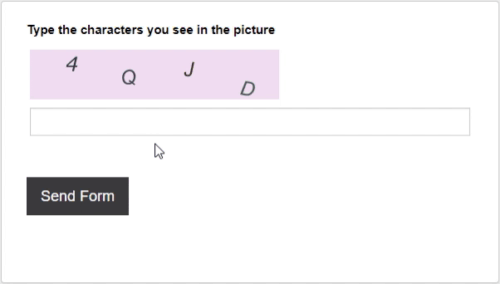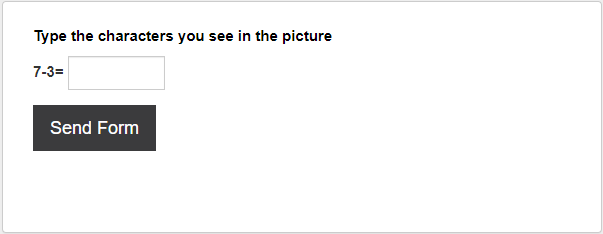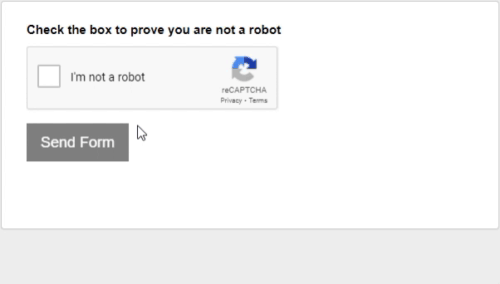Captcha
A 'Captcha' question type is used globally to ensure forms or surveys aren't completed by robots. 'Spambots' attempt to enter and access these surveys to post spam content everywhere they can. This is an extra security measure to validate that the respondent completing the questions is human.
Although this question can appear anywhere on your form, it is best practice to make it the last question on the form so that the respondent can agree to all terms and conditions for your form.
Captcha Type
Simple Image Captcha

The 'Image' captcha type will produce a series of random letters and numbers on a randomly generated background. The respondent will have to enter the generated series of characters into the input box in order to complete the form page.
Simple Maths Captcha

The 'Maths' captcha type will produce a simple math question (plus, minus or multiply) and the respondent will have to input the correct answer in order to complete the form page.
Google reCaptcha

The 'Google reCaptcha' is Google's own created version of an image captcha validation. This will simply ask the respondent to check the 'I'm not a robot' box. After selecting this box, the Google reCaptcha can produce two types of image validation for the respondent:
'Select all the squares with ___': The respondent has to select all the squares from one dissected image that contain part of an object within the whole image.
'Select all images with ___': The respondent has to select all the images that contain an object within them.
Alternatively, the Google reCaptcha can reload a new image if the current one is too difficult to interpret.
Have a look at this question type in an example form.
Use Cases
Human Validation
If your form asks for personal information such as full name, email address or post-code, it is good practice to add a 'Captcha' question type to ensure the respondent is not a robot.
This will stop the potential spam of fake entries to your form and ensures only real people will provide answers.
Not the question you were looking for? See the 'Question Types' topic to view all of the other types.